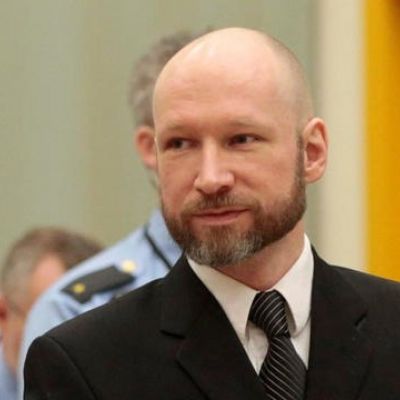The difficult subject of Anders Breivik’s religion, including questions about his Christian views, heritage and history. Anders Breivik, a Norwegian extremist with far-right ideology, carried out a terrorist attack in 2011 that killed 77 people. He used a car bomb in Oslo, followed by a shooting, to murder eight people and target 69 others, mostly young men, at a Labor Party youth camp.
Breivik is currently serving the longest sentence of 21 years in Norway, but his sentence could be extended if authorities believe he remains a danger. The latest spotlight on Anders Breivik is his legal case against the state, citing human rights violations due to his “extreme” isolation. Breivik previously sued the regime in 2016, claiming it violated the European Convention on Human Rights, which emphasizes protecting people from torture or punishment.
What religion does Anders Breivik follow? Is he religious?
Anders Breivik’s religion has sparked considerable discussion, especially online, where his doubts about Christianity have become a hot topic. Breivik first declared himself an Evangelical in 2011, declaring, “At the age of 15, I chose to be baptized and confirmed,” and adding, “I consider myself a Christian 100% God.” However, this declaration was met with fierce opposition from the political standpoint of most Protestant churches and the Roman Catholic Church.
Breivik announced his complete separation from Christianity in 2016, passionately asserting that he had never been a Christian. According to his lawyer, Ystein Storrvikthis, Anders Breivik’s faith turned to Nazism in prison. Despite media depictions of Anders Breivik’s faith as a fundamentalist Christian, his online posts resist this categorization. Anders Breivik’s analysis of religion shows a departure from Christian values, emphasizing what appears to be an extreme fear of Muslims and Marxists.
Notably, he declared prayers and offerings to Odin as part of the Anders Breivik religion, associating himself with the spiritual system of Odinism. This divergence from mainstream Christianity highlighted the complexity of his emerging religious identity. His comments and beliefs added complexity to the debate about Anders Breivik’s religion, forcing the public to confront the subtle elements of his spiritual development.
Learn more about Anders Breivik’s Ethnicity and Place of Origin
Anders Breivik was born in Oslo on February 13, 1979 and comes from a family full of fascinating complexities. His father, Jens David Breivik, a prominent civilian economist, began his diplomatic career at the Norwegian Embassies in both London and Paris. Meanwhile, his mother, Wenche Behring, had a turbulent childhood, fleeing an abusive family at age 17.
Wenche Behring was in her thirties when she became pregnant with Anders and she married Jens Breivik, Anders’ father, during a crucial period of her life. Proud of his Norwegian ancestry and nationality, he has a deep passion for the prosperity of Europe. His views became controversial when he expressed concern about what he called “Demographic Jihad” perpetrated by Islam.
Breivik stated in his writings that the influence of Islam and uncontrolled Muslim immigration were endangering the existence of Europe. In his mind, these factors were reshaping the cultural environment of Europe, eventually culminating in what he saw as the European invasion. Breivik’s ideas on these issues underscore his strong feelings about the intersection of culture, religion, and identity.
Let the article source Anders Breivik Ethnicity And Religion: Is He Christian? Where Is He From? of website nyse.edu.vn
Categories: Biography
